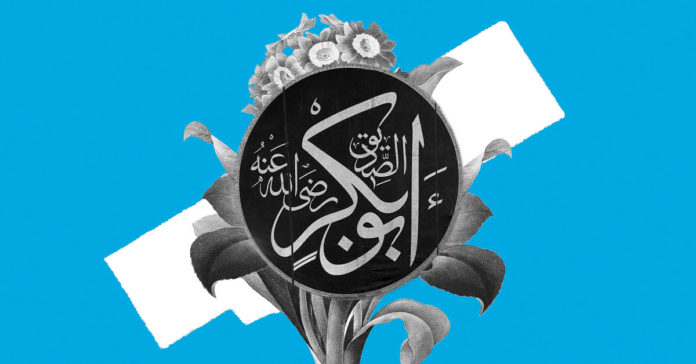The Prophet’s exemplary training of his Companions can clearly be discerned in the actions and character of Abu Bakr As-Siddeeq (ra). When Abu Bakr (ra) intended to migrate to Al-Madeenah, the Messenger of Allah ﷺ said to him, “Do not rush, for perhaps Allah will provide you with a (traveling) companion.” What effect did these simple words have on Abu Bakr (ra)? Well, after Abu Bakr (ra) left the Prophet’s company, he began to plan and prepare for the impending migration to Al-Madeenah. He bought two riding animals, kept them in his home, and fed them well in preparation for the upcoming long and arduous journey.
The following is related in the narration of Al-Bukhaaree: “And he fed the two mounts that were with him with leaves of As-Sumor (a kind of tree) for four months.” [Bukhaaree – 3905]
With his characteristic far-sightedness – and we must remember that he was being trained to be the leader of the Muslims after the Prophet’s death – Abu Bakr (ra) knew that the actual migration was going to be fraught with difficulties. He also knew that he could be ordered to leave at a moment’s notice, and for this reason he made the necessary preparations, in terms of arranging for riding animals and provisions. When the Messenger of Allah it finally came and informed him that Allah (SWT) had given him permission to leave and migrate to Al-Madeenah, Abu Bakr (ra) became so happy that he began to cry. ‘Aaishah (ra) later said: “By Allah, before that day, on which Abu Bakr (ra) cried, I never thought that anyone actually cried from being happy.” For someone to become so overjoyed and so happy that he begins to cry is indeed the pinnacle of happiness for any human being.
Abu Bakr (ra) became overjoyed because he understood the implications of being the Prophet’s companion on his journey to Al-Madeenah: Of all human beings, or more particularly of all of the Prophet’s Companions, Abu Bakr (ra) was going to have the honour of being the sole companion of the Prophet ﷺ for at least the thirteen to nineteen days it was going to take to complete the journey. He also knew that it was going to be a very dangerous mission and that he was going to have the sole honour of sacrificing his life if any opportune situation were to arise. What greater honour could one hope for in this world?
When Abu Bakr (ra) was afraid in the cave of Thaur, he was showing his sincere love for Allah and His Messenger ﷺ. He feared that the polytheists would see them, being afraid not for his own life, but for the life of the Prophet ﷺ. Had Abu Bakr (ra) feared death, he would not have accompanied the Prophet ﷺ on so dangerous a trip, in which it was more likely than not that the Prophet ﷺ would be captured by the enemy. If such an outcome were to come to pass, he (ra) knew that at the very least his punishment at the hands of the polytheists would be death. So Abu Bakr (ra) was afraid not for himself, but for the life of the Prophet ﷺ and for the future of Islam.
During the migration journey, Abu Bakr (ra) had other occasions to show his loyalty, foresightedness, and obedience. They were met on the way by a man who asked, “Who is this man that is with you?” Abu Bakr (ra) quickly answered, “He is a guide: He is guiding me to the way.” The questioner of course assumed that Abu Bakr (ra) meant that he was guiding him through the pathways of the desert, and that is what Abu Bakr (ra) wanted him to understand from his statement. What he really meant was that the Prophet ﷺ was guiding him to the way of goodness. By using this play on words, Abu Bakr (ra) was trying to conceal the identity of the Prophet ﷺ, for he of course knew that the polytheists were trying to locate him and capture him. In using a play on words, Abu Bakr (ra) managed to maintain the secrecy of their mission, and he also managed to avoid lying, for the Prophet ﷺ was truly his guide to the ways of goodness.
[The Biography of Abu Bakr As-Siddeeq (RA) by Dr. ‘Ali Muhammad As-Sallaabee, p. 103-105]









